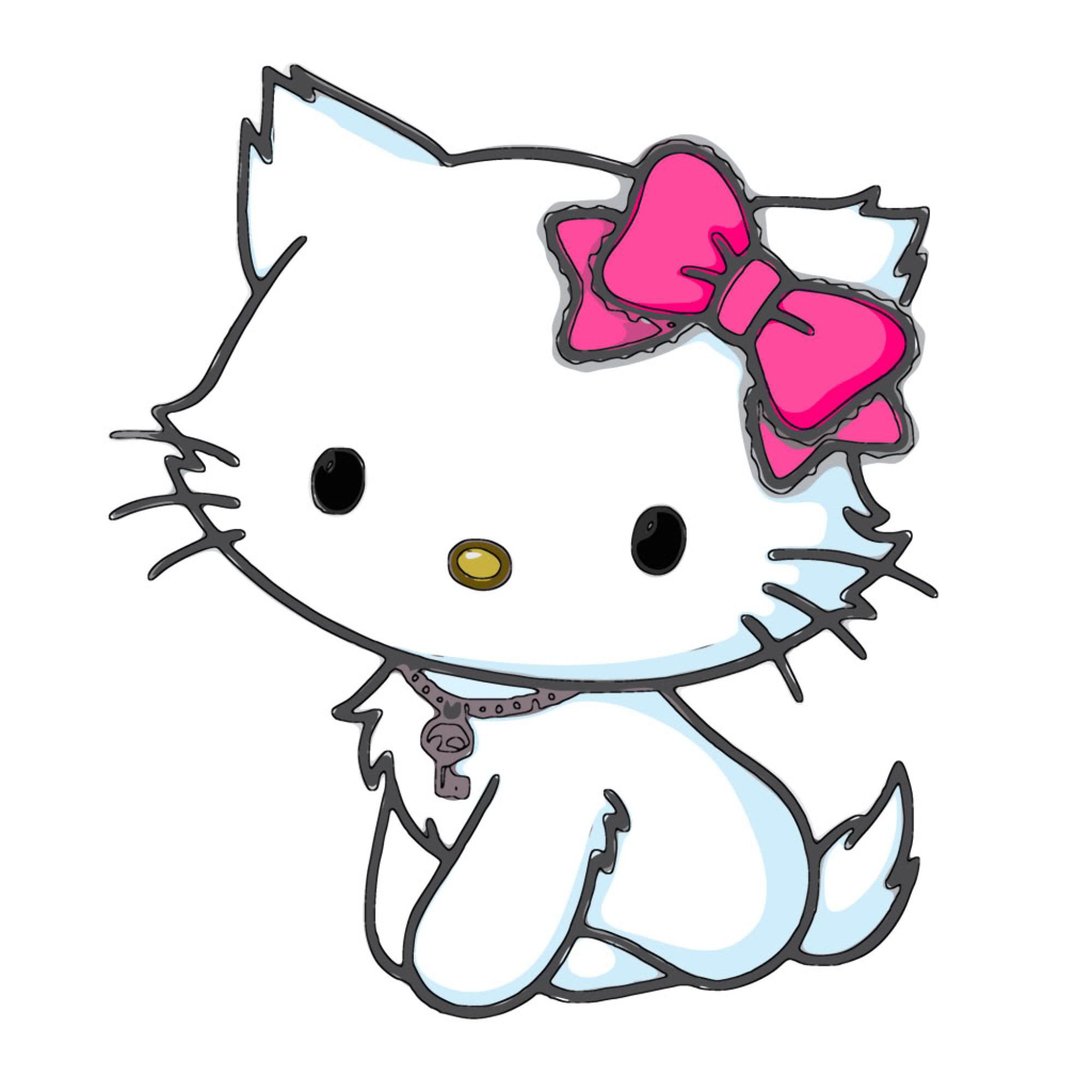Hello Kitty a cat has become a beloved character worldwide, transcending generations and cultures. Originally created by the Japanese company Sanrio in 1974, Hello Kitty has evolved from a simple cartoon character into a global sensation. Her cute, minimalist design and charming personality have made her a staple in merchandise, fashion, and even lifestyle branding. For many, Hello Kitty isn't just a character; she represents friendship, kindness, and a sense of nostalgia that resonates deeply with fans of all ages.
As a fictional character, Hello Kitty is portrayed as a white cat with a distinctive red bow and no mouth, which encourages fans to project their emotions onto her. This unique design choice has contributed to her widespread appeal, allowing people to connect with her on a personal level. Over the years, Hello Kitty has been featured in various media, including animated series, movies, and video games, further solidifying her status as a cultural icon.
In addition to her vast array of merchandise, including toys, clothing, and accessories, Hello Kitty has also collaborated with numerous brands and designers, showcasing her versatility and relevance in contemporary culture. The phenomenon of Hello Kitty a cat continues to thrive, captivating new fans while maintaining the loyalty of long-time enthusiasts. As we delve deeper into the world of Hello Kitty, we will explore her origins, impact, and the reasons behind her enduring popularity.
What is the Origin of Hello Kitty?
Hello Kitty was created by Sanrio designer Yuko Shimizu in 1974. The character was first introduced to the world on a vinyl coin purse and quickly gained popularity in Japan. Initially, she was marketed towards young girls, but her charm and appeal transcended age boundaries, leading to a broader audience.
How Did Hello Kitty Evolve Over the Years?
Since her inception, Hello Kitty has undergone several transformations. Initially depicted as a simple cat character, she has since expanded into a variety of roles and personas, from a fashion icon to a symbol of empowerment. Sanrio has continually adapted her image to reflect contemporary trends while maintaining the core values of friendship and kindness.
What Are Some Key Milestones in Hello Kitty's History?
- 1974: Hello Kitty is introduced by Sanrio.
- 1980s: The character gains international recognition, especially in the United States.
- 1990s: Hello Kitty becomes a popular figure in fashion, collaborating with various designers.
- 2000s: The character expands into multimedia, including animated series and movies.
- 2014: Hello Kitty celebrates her 40th anniversary with various events and merchandise.
Who is the Creator of Hello Kitty?
The talented designer behind Hello Kitty is Yuko Shimizu, who was inspired by the simplicity of Japanese design and the charm of childhood innocence. Her vision for Hello Kitty was to create a character that embodied happiness and friendship, which has resonated with audiences worldwide.
What is the Personal Background of Yuko Shimizu?
| Detail | Information |
|---|---|
| Name | Yuko Shimizu |
| Birth Year | 1970 |
| Nationality | Japanese |
| Occupation | Designer & Illustrator |
| Notable Works | Hello Kitty, Gudetama |
How has Shimizu's Work Influenced Pop Culture?
Yuko Shimizu's creations, especially Hello Kitty, have significantly impacted pop culture. The character has become a symbol of cuteness and positivity, often referred to as "kawaii" in Japanese culture. Her influence extends beyond merchandise; she has inspired art, fashion, and even lifestyle trends, showcasing the power of character design in shaping cultural narratives.
What Makes Hello Kitty a Unique Cat Character?
Hello Kitty's design is characterized by its simplicity. Unlike many other cartoon characters, she lacks a mouth, which allows fans to project their emotions onto her. This minimalist approach has made her a blank canvas for personal interpretation, enhancing her relatability.
How Has Hello Kitty Been Received Globally?
Globally, Hello Kitty has achieved immense popularity. Her merchandise is sold in over 130 countries, and she has a dedicated fan base that spans generations. The character's ability to adapt to different cultures while retaining her core values is a significant factor in her widespread acceptance.
What Are Some Popular Collaborations and Merchandise?
Hello Kitty's collaborations have been diverse and numerous, including:
- Fashion brands like Sanrio x Forever 21
- Makeup lines such as Hello Kitty x ColourPop
- Home goods with Target and other retailers
- Special edition products with companies like McDonald's
Why Do People Love Hello Kitty So Much?
The enduring love for Hello Kitty can be attributed to several factors, including her timeless design, positive message, and ability to bring joy and comfort to fans. Many people associate her with happy memories from their childhood, making her an integral part of their lives.
What Role Does Nostalgia Play in the Appeal of Hello Kitty?
Nostalgia is a powerful emotion, and for many fans, Hello Kitty represents a connection to their childhood. The character evokes feelings of warmth and innocence, making her a comforting presence in a fast-paced world. This sense of nostalgia often drives people to collect merchandise or engage with Hello Kitty-themed media.
How Does Hello Kitty Continue to Adapt and Evolve?
As trends change, so does Hello Kitty. Sanrio actively seeks to keep her relevant by incorporating contemporary themes and collaborating with modern brands. This adaptability ensures that Hello Kitty remains a beloved character for both old and new fans alike.
Conclusion: The Enduring Legacy of Hello Kitty a Cat
In conclusion, Hello Kitty a cat has cemented her status as a cultural icon through her charm, timeless design, and positive message. From her humble beginnings as a coin purse design to her global recognition, she has captivated hearts across the world. As we look to the future, it is clear that Hello Kitty will continue to evolve and inspire, proving that her legacy is far from over.



